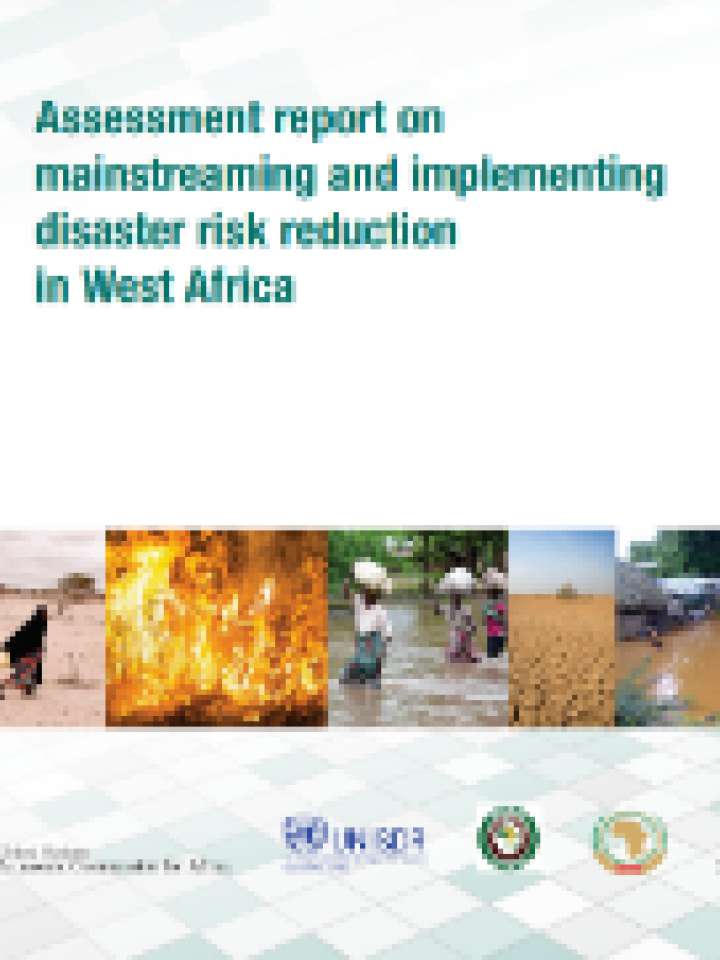Assessment report on mainstreaming and implementing disaster risk reduction in West Africa
This assessment report on mainstreaming and implementing DRR measures in West Africa was prepared within the framework of the United Nations Development Account project on mainstreaming DRR in national and regional development strategies in support of efforts to meet the Millennium Development Goals and the attainment of sustainable development goals in Africa.
The report finds that while there is some level of progress on DRR implementation at the national level, there are limitations at the lower level of governance and communities. Similarly, DRR activities have not been fully mainstreamed into the development plans, policies and PRSP documents of most ECOWAS member States.
The following recommendations are made to fast-track effective mainstreaming and implementation of DRR activities as part of cooperation and development frameworks at the subregional and national levels of West Africa:
- Capacity-building and training in DRR should be carried out in order to enhance awareness of relevance to development and scale-up efforts being made to main-stream and implement DRR.
- Strategic DRR Data Centres should be established to enhance storage and retrieval of DRR information.
- Advocacy and public enlightenment on DRR should be stepped up. Moreover, appropriate legislation should be promulgated; and competent DRR desk officers be designated in ministries, departments and agencies for effective DRR mainstreaming and follow up.
- EWSs should be strengthened and mechanisms for information sharing and early warning between meteorological services and DRR experts should be established to give appropriate alerts to prevent or mitigate risk and ensure adequate preparedness in the subregion.
- DRR/DRM agencies such as NEMA and the National Disaster Management Organisation (NADMO) in Nigeria and Ghana respectively, should be established by all ECOWAS member States through appropriate partnership with government and development partners, national private sector and civil society organizations to ensure effective implementation of DRR related policies, plans and programmes.
- ECOWAS member States should embark on decentralization of DRR activities to the local communities and the populations that are at the frontier of disasters.
- Countries should enact appropriate legislations to institutionalize DRR funding at all levels of government.
- ECOWAS member States should embark on the process to mainstream DRR elements into their basic education curriculum and enlarge the frontier for undergraduate/postgraduate studies and in-service training. Ghana and Nigeria provide good practice cases that could be emulated by other countries.
- Member states and subregional organizations should promote collaboration and sharing of sensitive DRR information among the academic/research institutes,hydrological and meteorological agencies, planning and decision-makers so as to ensure effective DRR delivery.
Explore further

